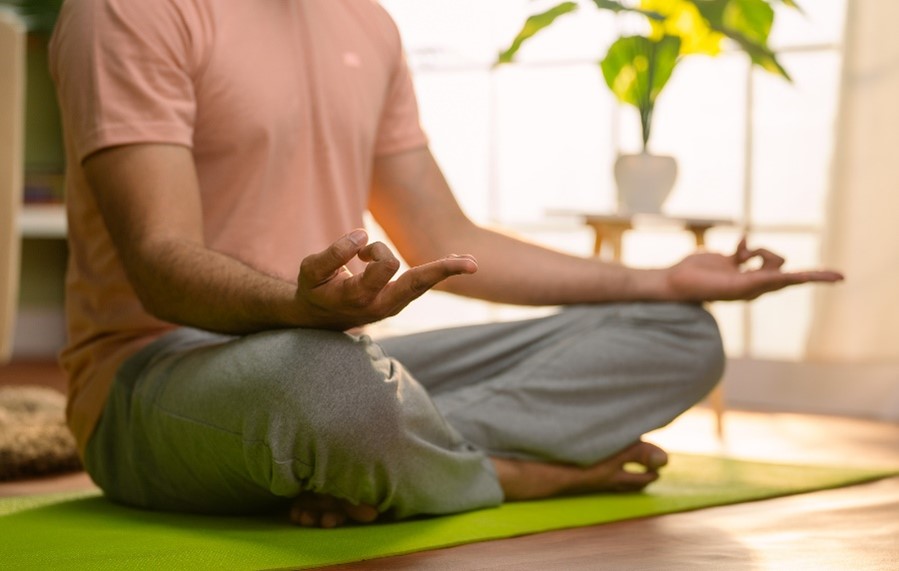Self-care advice seems to be everywhere. There are dozens of monthly magazines about mindfulness and meditation alone, not to mention books, retreats, and wellness apps. If you’ve never engaged in self-care, this flood of information may be overwhelming. Let’s go back to the start: What is self-care? Why is it important? How can you establish a routine of self-care that works for you? We address these questions below.
What Is Self-Care?
Self-care is easy to identify but difficult to define. Essentially, it’s about your relationship with yourself, how you treat yourself, what you prioritize, and what you take time for. Perhaps the easiest way to understand it is to break it down into various aspects of the self: the body, the mind, the soul, and the social self. All of these parts work together to create a person who is healthy, fully engaged with life, and able to respond to challenges and opportunities with an open mind and a ready heart.
Why is Self-Care Important?
Self-care allows you to enter every situation with the best tools in your internal toolbox. If you’re facing a battle, you want to go in as your most resilient, able self; if you’re entering a time of peace and relaxation, you want to open yourself up so you can fully experience the benefits; if you’re reuniting with loved ones or making new friends, you want to be able to relate to them as your kindest, most authentic self.
Self-care also has numerous health benefits: it helps you manage stress, lowers your risk of illness, improves your immune system functioning, and helps you sleep well at night. Following the multiple strains of the COVID-19 pandemic, many of us continue to experience burnout, depression, anxiety, and the damaging effects of isolation and loneliness. Self-care is the most important thing you can do to recover and to shore up your resources for future challenges.
How To Start a Self-Care Routine
Getting started with self-care can be overwhelming, so remember you don’t have to do it all at once. Begin by taking an inventory of how you are doing in every area of your life, focusing on your mental and physical health, your spiritual wellness, and your relationships. Choose something you want to work on and start with simple things. Here are some examples of what you can do to get on the road to better self-care:
Physical Self-Care:
- Exercise: If you’re not already a regular exerciser, start with something simple like walking or beginner yoga. Aim for at least 30 minutes of moderate exercise a few times a week and increase that as you get more comfortable.
- Healthy eating: Add some more vegetables to your plate, have fruit for dessert, and eat fewer processed foods. Cut down on your intake of caffeine and alcohol.
- Drink water: Where have we heard this before? It’s still important and plays a key role in nearly every bodily function, including digestion, nutrient absorption, and maintaining energy levels. Treat yourself to an insulated tumbler to keep your water cool and refreshing. Add a squeeze of lemon for flavour.
- Sleep: Aim for 7-9 hours of sleep each night. Practice good sleep hygiene: keep a regular sleep schedule, avoid screens before bed, and create a restful environment to support falling and staying asleep.
- Watch your posture: A very simple way to practice physical self-care is to pay attention to your posture throughout the day. This can help prevent issues like back and neck pain. Take stretch breaks if you feel yourself slouching or tensing up.
Mental and Emotional Self-Care:
- Unwind: Engage in activities that help you relax and step away from sources of stress. Try reading, journaling, or a mindful hobby such as knitting or art. If none of these appeal to you, try taking a class in something you think you might enjoy.
- Ask for help: It can be very difficult to ask for support, especially when you’re trying to work on resilience, but the path to wellness almost always goes through a scary forest of vulnerability. Take the first step by reaching out to someone you know you can trust or to a therapist who will support you in your vulnerability.
- Set boundaries: If others are taking more from you than you can give, set limits on your time and energy. This can be difficult to do, especially with people who are close to you, but it will ultimately improve your relationship.
- Be compassionate towards yourself: Treat yourself the way you treat your loved ones, with kindness, understanding, and forgiveness.
Social Self-Care:
- Engage with others in a meaningful way. Rather than superficial interactions, try to ask deeper questions and communicate genuine interest.
- Practice active listening and empathy in your interactions. You will find that listening to others will open you up to sharing your own challenges with people who are important to you.
- Engage in activities that promote connection, such as volunteer work or joining a club. You may need to try a few opportunities before you find one that’s right for you, but don’t give up!
Spiritual Self-Care:
- Engage in practices that nurture your spiritual beliefs, such as meditation, prayer, or yoga. If you don’t have a practice like this, try some classes or online videos until you find something that’s right for you.
- Spend time in nature, even if that means just appreciating the beauty of a flower. This can help you enter a more mindful state as well as provide you with health benefits.
- Reflect on your values and check to see if your actions line up with them.
Maintaining Self-Care
It may take time before your new routines become habits, but once they do, you’ll engage in them without thinking about it. Focusing on breathing, for example, is an important part of getting in touch with your body, lowering anxiety, and entering a meditative state. If you practice with a video or some guided meditation, you will soon find yourself automatically concentrating on your breath when you encounter stressful situations.
When your self-care habits start to wane, ask yourself how you are doing in each domain of self-care, and then reflect:
- Where do I need to improve?
- What tripped me up? What is standing in my way?
- What have I done in the past to improve in this area?
- Are my self-care goals realistic, or do I need to adjust them?
- What are my plans to get back on track?
Conclusion
Practicing self-care can feel like a chore, but as you adjust your routine, you will find that success in one area will make it easier to achieve your objectives in others. Make small changes, go easy on yourself, and don’t give up!
If you want help establishing or maintaining a self-care routine, talking to a professional can help, and it can also be part of your self-care. At Kari Walton Counseling, we understand how difficult it can be to prioritize yourself. Every member of our team has experience dealing with this challenge; we are here to help you overcome the fears, hesitation, and guilt that often come with taking time for yourself. Let us help you root out your stumbling blocks so you can get back on track. Contact us today for an appointment. Let’s talk.

